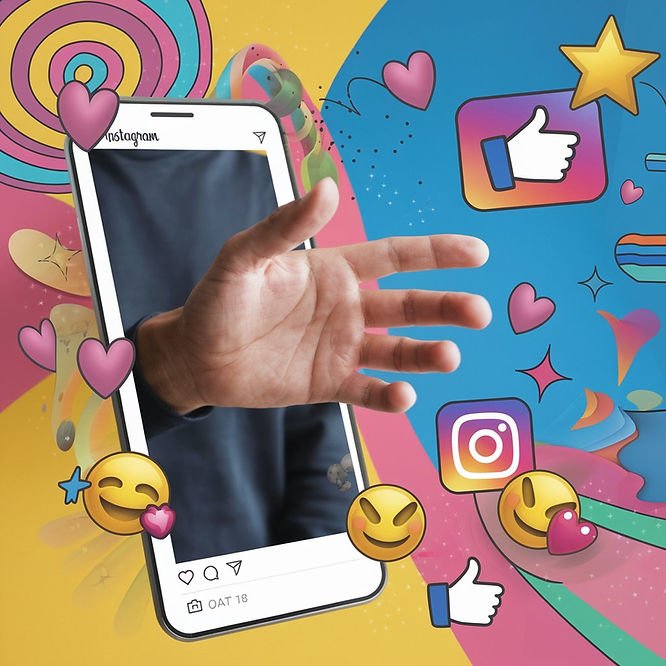Are You Living Curiously Enough?
Do you remember the last time you felt completely captivated by something new—a sunset, a podcast, or even a quirky fact about the universe? Curiosity is more than a fleeting feeling; it’s a powerful tool for creativity, personal growth, and life satisfaction. Recent studies suggest that curiosity doesn’t just make life more interesting—it rewires your brain, helps you flourish, and boosts overall happiness.
In a world often driven by routines and to-do lists (maybe), curiosity offers a refreshing lens through which we can rediscover joy and inspiration. So, how can you use curiosity to transform your life? Let’s dig deep into the science and explore practical ways to cultivate this transformative mindset.

The Neuroscience of Curiosity and Creativity
Curiosity activates the brain’s reward system, releasing dopamine—the same chemical involved in motivation and pleasure. According to Dr. Andrew Huberman, curiosity is intricately linked to neuroplasticity, the brain’s ability to form and reorganise neural pathways. This rewiring not only enhances learning and memory but also fuels creative problem-solving.
In a groundbreaking 2023 study published in Nature Neuroscience, researchers found that curiosity-driven learning boosts the retention of new information by engaging areas of the brain responsible for long-term memory and understanding. The study also noted that curiosity fosters a more flexible mindset, enabling people to approach challenges with openness and adaptability.
Pairing curiosity with awe—a state of wonder often sparked by nature or profound human achievements—can amplify its benefits. A 2024 commentary in Frontiers in Psychology described how awe triggers a sense of vastness and curiosity, encouraging individuals to explore their surroundings and think more expansively.

Actionable Tip #1: Add a Dose of Awe
- Dedicate 10 minutes a day to seeking awe. Whether it’s watching a stunning nature video, exploring a park, or stargasing, use curiosity as a lens to ask, “What makes this moment extraordinary?”
Why Curiosity is Key to Happiness: Benefits to Creativity According to Science!
Happiness isn’t just about achieving goals; it’s about enjoying the journey. Martha Beck refers to this as “open-ended joy”—a state where the process itself becomes the reward. Dr. Laurie Santos, host of The Happiness Lab, explains that curiosity fosters gratitude (or otherwise posed as, delight!), a key driver of life satisfaction. By staying curious about the small moments in life, like the warmth of the sun or a stranger’s smile, we can experience richer, more meaningful emotions.
Further studies (Plos One, 2022) show that curiosity enhances not just happiness but also generativity—a sense of purpose and care for future generations. This connection between curiosity and purpose is pivotal for long-term well-being.
Actionable Tip #2: Practice Micro-Curiosity
- Start a gratitude journal with a twist. Each night, write down three things you were curious about during the day. Reflect on how those moments enriched your experience and deepened your appreciation for life.
Curiosity as a Catalyst for Growth
Curiosity isn’t just about seeking knowledge; it’s also about fostering resilience. Dr. Jordan B. Peterson often speaks of curiosity as a bridge between ambition and meaning. When we approach challenges with an exploratory mindset, we’re better equipped to overcome fear and build confidence.
Curiosity also drives self-discovery. A 2022 paper in Frontiers in Psychology highlighted that individuals who scored high on curiosity reported greater life satisfaction and professional fulfillment. They actively sought out new perspectives, deepening their understanding of themselves and their purpose.
Another fascinating insight comes from a 2024 article in Behavioral and Brain Sciences, which found that curiosity and creativity are complementary processes. While curiosity thrives on uncertainty and exploration, creativity is motivated by novelty, combining the two to fuel innovation.

Actionable Tip #3: Be an Explorer
- Choose an area of your life—career, relationships, or personal growth—and ask, “What don’t I know yet?” Actively seek out books, podcasts, or new experiences to broaden your perspective. Curiosity isn’t about finding answers; it’s about asking better questions.
From Curiosity to Connection
Relationships thrive on curiosity. Vanessa Van Edwards, author of Cues, notes that genuine curiosity builds trust and empathy, strengthening bonds with others. When we ask thoughtful questions, we show that we value others’ perspectives, paving the way for deeper, more meaningful connections.
Curiosity also helps us bridge differences. A 2024 commentary in Nature Communications discussed how curiosity fosters collaboration by encouraging openness to diverse viewpoints—a vital skill in today’s interconnected world. Whether in friendships or professional settings, curiosity can turn small talk into transformative conversations.
Actionable Tip #4: Start a Curiosity Challenge
- Each week, challenge yourself to ask five open-ended questions in your conversations. Instead of “How was your day?” try, “What’s something new you learned this week?” Notice how this deepens your interactions and builds trust
Turning Curiosity Into a Daily Habit
Cultivating curiosity isn’t a one-time effort; it’s a habit that grows stronger with practice. A 2024 study published in Frontiers in Public Health revealed that engaging in creative activities like journaling or crafting significantly boosts mental well-being. These activities, when done with a curious mindset, enhance problem-solving skills and provide a sense of accomplishment.
Curiosity also acts as a buffer against stress. Dr. Huberman explains that curiosity shifts the brain from a fear response to a reward response, making challenges feel less daunting and more like opportunities. By embracing curiosity, we can reframe setbacks as learning experiences, fostering resilience and optimism.

Actionable Tip #5: Turn Setbacks Into Lessons
- The next time you face a challenge, ask yourself, “What can I learn from this?” Use curiosity to reframe failures as opportunities for growth, keeping you motivated and resilient.
IN SHORT…
As we step into 2025, curiosity is more relevant than ever. It offers science-backed benefits that fuel creativity, enhance happiness, and promote life satisfaction. Whether you’re gazing at the stars, starting a new project, or asking better questions, let curiosity guide you—it might just be the key to flourishing in your everyday life.
To put this into action:
- Seek Awe Daily: Spend 10 minutes experiencing something awe-inspiring, like nature or art, to spark curiosity and wonder.
- Gratitude with Curiosity: Practice a nightly gratitude journal focused on moments of curiosity.
- Explore Uncharted Areas: Choose one area of your life and actively seek new knowledge or perspectives.
- Deepen Conversations: Ask open-ended questions to foster meaningful connections.
- Reframe Challenges: View setbacks as opportunities to learn and grow through curiosity.
Let curiosity shape your journey, and watch as it transforms your creativity, relationships, and happiness. The way we react and respond supersedes all.
Reach out to me on Instagram, TikTok, or directly at gabrielle@onpointpsychotherapy.com. You can also visit my website at On Point Psychotherapy. I’m not just saying this; I want to hear from you!! I’m offering a free 15 minute consult for those who are keen to dig deep, dive in and explore their psycho-social tendencies.
References
Beck, M. (2021). The Way of Integrity.
Huberman, A. (2023). Podcast: The Huberman Lab.
Santos, L. (2021). Podcast: The Happiness Lab.
Peterson, J. B. (2021). Beyond Order: 12 More Rules for Life.
Van Edwards, V. (2022). Cues: Master the Secret Language of Charismatic Communication.
Nature Neuroscience (2023). Curiosity-driven learning and memory.
Frontiers in Public Health (2024). Creative activities and mental well-being.
PLOS ONE (2022). Curiosity, generativity, and happiness.
Behavioral and Brain Sciences (2024). Curiosity, uncertainty, and creativity.
Gabrielle-Beth Volovsky
Psychotherapy and Counselling Professional
Certified PACFA Counsellor
